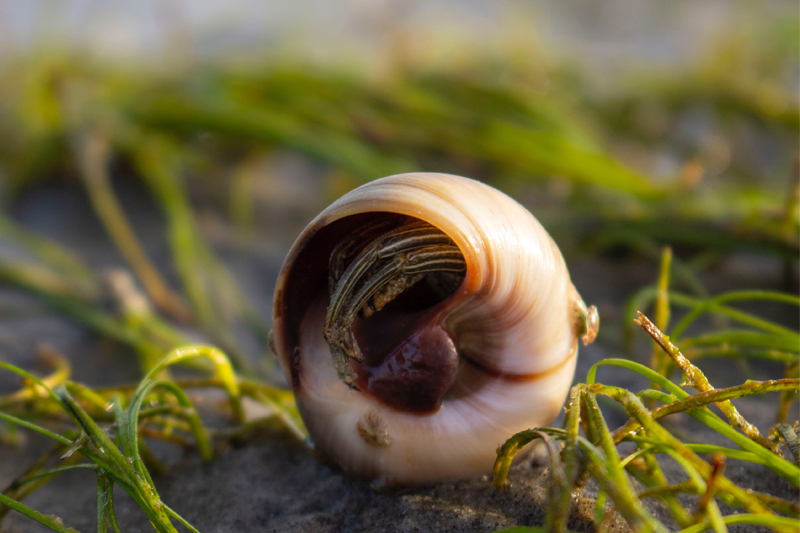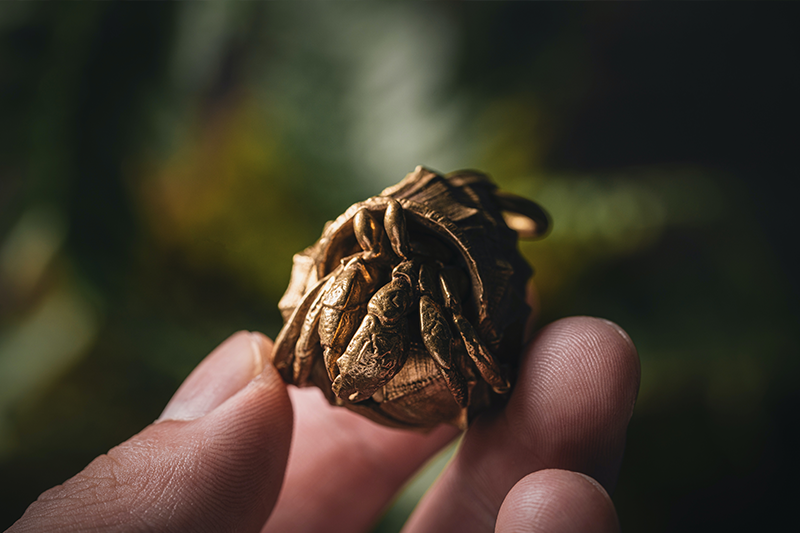Hermit crabs are generally hardy creatures that don’t get sick very often, but like all animals, they can develop health issues. Here are some common health issues that may affect hermit crabs:
- Molting problems: Molting is the process by which hermit crabs shed their exoskeletons to grow. If the hermit crab doesn’t have a proper environment to molt or if the crab is stressed, it can lead to molting problems, which can be fatal if not addressed.
- Shell damage: Hermit crabs rely on their shells for protection, and if their shell is damaged, they become vulnerable to attack from predators or other crabs. Shell damage can occur due to fights, accidents, or a lack of suitable shells to change into.
- Bacterial and fungal infections: Hermit crabs can develop bacterial and fungal infections on their exoskeletons, which can cause discoloration, lethargy, and even death. These infections are often caused by poor living conditions, such as dirty water or substrate.
- Parasites: Hermit crabs can be affected by various types of parasites, such as mites, fleas, and ticks. These parasites can cause itching, irritation, and even anemia in severe cases.
- Dehydration: Hermit crabs require a moist environment to breathe through their gills and to keep their exoskeletons healthy. If the humidity level is too low or the crab doesn’t have access to fresh water, it can become dehydrated, which can be fatal.
- Nutritional deficiencies: Hermit crabs require a balanced diet that includes a variety of foods, such as fresh fruits and vegetables, protein, and calcium. If they don’t receive proper nutrition, they can develop nutritional deficiencies that can lead to health issues.
It’s essential to keep your hermit crab’s environment clean and provide a balanced diet to prevent health issues. If you notice any signs of illness or unusual behavior, it’s best to consult a veterinarian who specializes in treating exotic animals.
What are common signs of illness should I look out for?

Here are some common signs of illness to look out for in hermit crabs:
- Lethargy: If your hermit crab is not moving much or seems to lack energy, it may be a sign of illness.
- Loss of appetite: If your hermit crab is not eating or is eating less than usual, it could be a sign of an underlying health issue.
- Weight loss: If you notice that your hermit crab has lost weight, it may indicate a health problem, such as malnutrition or dehydration.
- Shell abnormalities: If your hermit crab’s shell is discolored, damaged, or appears to be eroding, it may indicate a health problem.
- Abnormal behavior: If your hermit crab is behaving differently than usual, such as hiding more often, staying in its shell, or not coming out to eat, it could be a sign of an underlying health issue.
- Discharge or foul odor: If you notice any discharge or foul odor coming from your hermit crab, it may indicate an infection or other health problem.
- Difficulty walking or climbing: If your hermit crab is having difficulty walking or climbing, it may be a sign of muscle weakness, injury, or illness.
- Breathing difficulties: If your hermit crab is having trouble breathing or appears to be gasping for air, it may be a sign of a respiratory infection or other health issue.
If you notice any of these signs or other abnormal behavior in your hermit crab, it’s best to consult a veterinarian who specializes in treating exotic animals. Early detection and treatment of health issues can improve the chances of a successful recovery.
How do I treat my sick hermit crabs?
The treatment for a sick hermit crab will depend on the specific illness or condition it is suffering from. Here are some general steps you can take to help treat your sick hermit crab:
- Provide a suitable environment: Ensure that your hermit crab has a suitable environment that meets its needs, including the right temperature, humidity level, and substrate.
- Clean the habitat: Clean the habitat regularly to prevent the spread of infection and to maintain a healthy living environment.
- Adjust the diet: Provide a well-balanced diet that meets the nutritional needs of your hermit crab. Consult with a veterinarian to ensure that you are providing the correct diet.
- Administer medication: If your hermit crab is suffering from a bacterial or fungal infection, your veterinarian may prescribe antibiotics or antifungal medication. Follow the dosage instructions carefully and administer the medication as directed.
- Provide isolation: If your hermit crab has an infectious disease, isolate it from other hermit crabs to prevent the spread of the disease.
- Monitor the condition: Keep an eye on your hermit crab’s condition and behavior. If you notice any changes or worsening symptoms, contact your veterinarian immediately.
- Provide a quiet and low-stress environment: Minimize stress as much as possible for the crab while it recovers.
It’s important to remember that hermit crabs are delicate creatures, and any changes to their environment or diet should be done gradually to prevent further stress. If you suspect your hermit crab is sick, it’s best to consult a veterinarian who specializes in treating exotic animals for a proper diagnosis and treatment plan.
Is it safe to treat my hermit crabs by myself?
Treating hermit crabs by yourself can be risky, and it’s always best to consult a veterinarian who specializes in treating exotic animals. While there are some over-the-counter medications available for hermit crabs, using them without proper knowledge and guidance can be dangerous and may even make the condition worse.
Hermit crabs can be very sensitive to changes in their environment, and attempting to treat them without proper knowledge can cause further stress, which can be harmful to their health. Additionally, many hermit crab health issues can have similar symptoms, making it difficult to determine the exact condition without a proper diagnosis.
A veterinarian who specializes in treating exotic animals has the knowledge, experience, and tools necessary to diagnose and treat hermit crab health issues. They can also provide guidance on how to prevent further health issues and maintain a healthy living environment for your hermit crabs.
In short, while there are some steps you can take to help your sick hermit crab, it’s always best to consult a veterinarian who specializes in treating exotic animals for a proper diagnosis and treatment plan.
